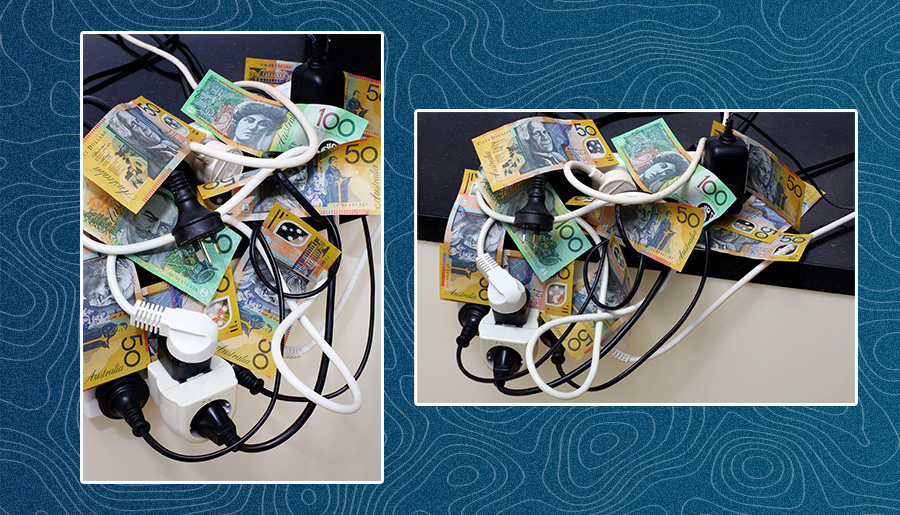If you live in Western Australia, Queensland, or the NT, then you’re in luck. Cause your state or territory currently has scored enough gas to last until 2027.
This means that during 2023’s colder months, there’ll be enough supply to meet the demand of everyone using their heaters. You’ll be able to get warm while keeping your power bills somewhat reasonable. No gas shortage risks for you, possums!
However, if you live in NSW, Victoria, South Australia, Tassie, or the ACT, then we have some feral news. Your joint is at risk of going through a gas shortage. This means that your power bills might go haywire during winter.
This worrisome prediction comes from the folks at the Australian Energy Market Operator.
As their CEO, Daniel Westerman, said, “The risk of gas shortfalls each year from winter 2023 to 2026 in all southern jurisdictions remains under extreme weather conditions and periods of high gas-powered electricity generation, with those risks further exacerbated if gas storage levels are insufficient.”
Westerman also mentioned that this gas shortage was also driven by “the continued decline of production in the Gippsland region, along with pipeline capacity limitations.”
Yet, while this summary might feel comprehensive, Westerman fails to mention one important fact. And that fact is: Australia would be full to the brim with gas if we didn’t export so much of the stuff.
“Australia does not have a gas shortage problem,” said Dr Carl Tidemann, a Senior Researcher at the Climate Council. “Australia produces five times more gas each year than we use at home. In fact, 80% of Australia’s gas is exported or used by the gas industry itself.”
The Solution
So, how do we prevent this drama from escalating in the future? Well, we could further limit the amount of gas that Australia exports. However, Westerman didn’t advocate for this. He instead declared that more gas plants need to be opened up across the board.
As Westerman said, “Investments are needed in the near term to ensure operational solutions from 2027, despite falling gas consumption.”
It’s worth noting that the Climate Council believes that opening more gas plants would be a yikes move. They are instead advocating that Australia fixes this problem by investing in making renewable forms of energy more readily available.
“It’s preposterous to consider expanding gas when the bulk of it is being sent abroad,” said Tidemann. “More gas will not only have disastrous climate consequences, but will continue to expose Australian households to the volatile energy prices we’ve experienced over the last two years.”
“As one of the sunniest and windiest countries on Earth, the future of our energy is from renewables backed up by various energy storage technologies, including batteries and pumped hydro.”
Reduce Your Power Bills
Unfortunately, even if renewable forms of energy are properly embraced around Australia, it won’t be in time to save some folks from 2023’s worrisome winter. So, with this in mind, it’s important that you get prepped to protect your bank account.
One way you can reduce your power bills this winter is by reducing the amount of heat that escapes from your digs. You can do this by purchasing your doors some draught stoppers. You know, those long-insulated snakes? Yeah, those things slap.
Another way you can reduce your energy consumption is by washing with cold water. According to Choice’s research, cold water cycles use less electricity than warm water cycles. There’s no point in having a pile of warm and wet clothes if it’s killing your balance.
Finally, make sure that your energy provider is the best bang for your bucket. Google around. Go hunting for some top-notch local deals. Don’t be loyal to a company that’ll invoice you for not freezing to death.
Related: Labor Attacks the Greens — The Climate Wars Continue
Related: How Does the Government Plan to Reach Net Zero by Opening 10 New Oil and Gas Sites?
Read more stories from The Latch and subscribe to our email newsletter.







